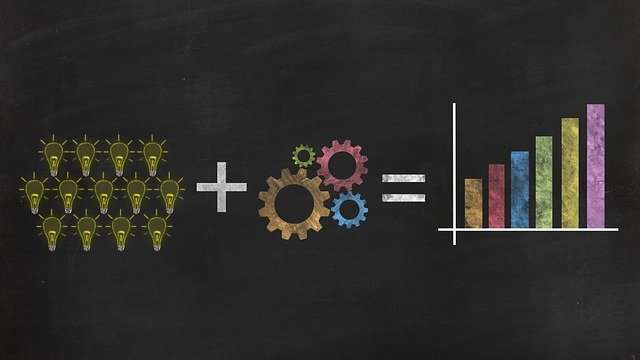
by Suellen | Meeting the Challenges, Vision and Goals
After reading the last two posts, you might be saying: What am I? Would I be labeled a “fixed” or “growth” mindset?
In the last two posts we met Janet and Hal. They had entirely different mindsets and their attitudes affected their career progress. Yet things are not always so cut and dried, so we need to dig deeper into this idea of attitudes.
Growth mindset and fixed mindset might seem like opposites, and in many ways they are, but there’s more to it than that. These mindsets are different ways of looking at the world and of processing and using the information that we are presented with.
From a personal development standpoint, a growth mindset is preferred, but that doesn’t mean it’s better than a fixed mindset in other ways. Both have their advantages and disadvantages and having more of a fixed mindset or more of a growth mindset doesn’t determine what type of person you are.
Furthermore, the vast majority of people don’t have either a pure fixed mindset or a pure growth mindset. It’s doubtful if a person with such a mindset even exists. All that can be said of anyone is that they have more of one type of mindset than the other.
Mindset is a tricky thing in that it can vary from one facet of life to another as well. This means that someone can have a strong fixed mindset in one arena and a strong growth mindset in another.
As an example, you’ve met people who are fitness experts but who don’t have any desire to learn computer technology. And vice versa; people who are online geniuses yet feel inhibited when they go to the gym.
Another important fact about growth versus fixed mindset is that no one’s mindset is static. It changes throughout your lifespan. It usually (but not always) becomes more mixed or a predominantly growth mindset as you age.
The changes are directed by innate personality and life experiences unless a person is actively involved in personal development.
Because mindset is changeable, it can be directed by both internal and external forces in one direction or the other. That is to say, you can direct your mindset into more growth mindset-oriented patterns, but other people can influence you also. Educators and psychologists have designed numerous programs and developed multiple methods of doing this with students and employees.
If you’re interested in learning which type of mindset you have, psychologists have designed quizzes you can take for this purpose. Some of them are available online for free but keep in mind that these aren’t comprehensive and provide only a small snapshot of the large portrait that is your mindset. They are handy for identifying specific areas you want to work on.
As you pray and seek God’s guidance, you can discover areas of your life that are on target, and ones you want to improve.
Take a deep breath,and move forward. Changes can come, if you’d like.
Overcoming Limiting Beliefs will help you and your customers. You can use this Done-For-You Content as blogposts, e-books, short courses, and any other way you can imagine!

by Suellen | Meeting the Challenges, Vision and Goals
Hal was gifted in sports. He played baseball, soccer, basketball – and golf. Needless to say, his high school and college years were loaded with games, practices and more of the same. Hal loved all the activity, and it trained him in many ways.
It taught him to be disciplined and to press through when things weren’t going so well.
When Hal graduated from college, his obvious career choice was that of a coach. So he tried that. However, after awhile, he felt stagnant in his job and started thinking about a change.
That’s when the management job at a sports equipment company was offered.
This would be totally different. Instead of being physically active, he would be at a desk much of the time. This would require lots of computer work – a skill Hal didn’t have. There would be many reports – not Hal’s forte.
Yet the pay would be much better, and there was much room for advancement.
Hal took the job, knowing that whatever he had to learn, he could. And whatever he had to do, he would be able to acquire the skills.
Hal had a growth mindset.
A growth mindset is one that believes in change and improvement. You can start yours HERE
Someone who has a growth mindset believes that their skills and talents can be improved through hard work, practice, and dedication. Natural talent is a gift of genetics, but it alone is not enough to make someone a master of their craft, and even the most talented person can get better through practice.
People with a growth mindset have a love of learning and never stop trying to learn new things, even many years after they get out of school. They’re always trying to understand the latest methods in their field, improving their skills at a sport, or learning something new.
The 80-year-old woman in the Beginning French class has a growth mindset, as does the newly retired executive who takes up windsurfing for the first time.
A growth mindset embraces challenges, sometimes to the point of seeking them out. People with this mindset see challenges as learning and growth opportunities rather than obstacles standing in their way. They don’t get easily frustrated by failures and roadblocks; they believe these things are to be expected and are a sign they need to adjust and try again.
Intelligence and other personal attributes aren’t fixed, or so believe those who have a growth mindset. They believe that these things can change with hard work and effort.
Genetics are merely a starting point, a blueprint provided by God, and \you can improve upon your abilities as you grow.
Growth mindset people see constructive feedback as a helpful method of improving themselves rather than criticism or a personal attack. They take the feedback and use it to improve their performance in whatever area it’s regarding.
Stress doesn’t affect those with a growth mindset as strongly as it does those with a fixed mindset. This mindset confers a resilience that allows them to be less affected and to bounce back faster than other people. This is not to say that serious problems or negative life events (such as deaths in the family) don’t affect them, but they tend to recover faster.
The success of other people is inspiring to those with a growth mindset. They try to figure out how the other person succeeded and how to imitate them. This increases their own odds of success.
Persistence, resilience, dedication, and a commitment to growth are the hallmarks of the growth mindset. No one has a pure growth mindset, but every person can work on cultivating their mindset to make it more growth-oriented.
If you have “limiting beliefs” this is for you. Overcoming Limiting Beliefs

by Suellen | Meeting the Challenges, Vision and Goals
Janet was offered a promotion at work. – a promotion which would have brought her a greater future. However, acquiring some internet skills would be required, and she knew that she couldn’t do the job.
Janet had never been “techy.” She figured that her mentality was geared more toward arts and not tech.
So she let the promotion pass her by.
Janet was suffering from a thing called “fixed Mindset,” and this attitude caused her to let many opportunities pass her by.
There are two basic types of mindset: fixed mindset and growth mindset. Of the two, growth mindset is the preferred one, but that’s not to say there is anything inherently wrong with having a fixed mindset; it’s just a different way of viewing the world.
And that mindset can limit you just as it did Janet.
Furthermore, few people have a pure fixed or growth mindset. Most people have a combination of the two, and they might have different aspects of each in different parts of their lives.
A person’s mindset is also changeable and changes naturally through time or due to conscious effort.
See how you can Overcome Limiting Beliefs and share these ideas with your community.
All of that said, what is a fixed mindset? A fixed mindset believes personal qualities and attributes are fixed at birth and aren’t able to be changed or improved upon. An example is intelligence; someone with a fixed mindset sees that as a fixed quantity bestowed upon a person by the genetics.
Other things someone with a fixed mindset sees as fixed include things like skills and natural talent. For example, a fixed mindset person might say “I’m just no good at sports” and downplay the possibility of improving their skills through practice.
Skills are given from the fixed mindset viewpoint, not earned.
People who have a fixed mindset often seek safety rather than opportunities for growth.
They see challenges as obstacles rather than learning opportunities.
They also tend to take constructive feedback as a personal attack rather than using it to improve their skills and performance at work and elsewhere. After all, if skills and attributes are fixed, why try to improve?
A fixed mindset leads people to give up on things they’re not immediately good at and to move on to other things that come more naturally. Some also give up when they feel frustrated.
One final disadvantage of a fixed mindset is that it can lead to a tendency to feel envious of or threatened by other people’s success.
There are two big advantages to a fixed mindset, however.
The first is that it forces people to embrace reality.
The second is that it avoids problems with unrealistic optimism.
People with a fixed mindset are usually the hard-core pragmatists and realists who keep other people on the ground.
Again, most people don’t have either a purely fixed or growth mindset.
And if you don’t like your current mindset, guess what? You can change it!

by Suellen | Meeting the Challenges, Vision and Goals
What’s the number one factor that determines whether someone succeeds at achieving a goal? Do you know?
Is it genetics? Luck?
What about skills or natural talent?
Hard work has to be in there somewhere, right?
How about networking and getting the right degree?
All of these factors are important, some more so than others, but none hold the number one spot.
So, what’s number one?
Mindset! That’s it! Research has shown that mindset is a better predictor of future success than every other factor you can consider, including hard work and natural talent.
You and your clients can improve your mindsets with this Done-for-you package
This is the case with every endeavor. Whether it’s graduating from high school, getting a promotion at work, buying a home, starting a business, or making it into a professional sports league, mindset is the most important determinant of success.
Do you remember the saying: If you think you can, you can. If you think you can’t, you’re right?
Obviously, your mindset has to line up with your skills. Not everyone can be a pro-football player or a rocket scientist. There are natural skills involved.
Yet there are many who have the natural skills but who haven’t developed the mindset to believe in themselves.
Why is mindset so important? What makes it so important that it overrides many other factors which can influence success?
Mindset is what drives you, what motivates you, and what makes you get up to try again when you fail.
No one succeeds on the first try. No one, no matter how talented, gets where they want to be without some failures or setbacks. Those who don’t have the right mindset -who have a fixed mindset or a negative mindset -will give up well before they reach their goal.
They’ll conclude that whatever it was isn’t for them and move on to something else.
People who have a growth mindset will get up and try again. They’ll find another way to get where they want to go. They’ll work harder and smarter, get coaching, ask for help, and do whatever else they can to reach their goals. They see failure as an obstacle and a challenge, not a final verdict on whether or not they can get where they want to be.
Mindset gives you grit, determination, and stamina. It can keep you going when everything seems lost and hopeless. This is why mindset is the number one predictor of success. If you want to up your odds of achieving your goals, you must cultivate a growth mindset

by Suellen | Meeting the Challenges, Vision and Goals
Do you pray over your business? I do.
In fact, I often start my morning with an hour or more of spending time with God. Praying, listening, and reading the Bible.
I consider him to be the CEO of my business. I’m the COO. He’s the boss. I just carry out His plans.
So what difference does this make?
First, spending this time helps me stay focused on the right priorities. My number one priority is to serve my customers – helping them to achieve their goals. I want to offer products and services which bless them abundantly.
Second, this special time helps me gain clarity. Often as I pray, the Holy Spirit gives me new ideas and shows me where I’m not being as productive. What to pick up and what to put down. With clarity, I can approach the day with a clear picture of what I want to accomplish.
Third, praying gives me confidence. I know that I have God’s hand on my business and He is empowering me to achieve His goals. So I know that I will be successful in what I am doing because He is with me in the process.
So how about you? Do you pray over your business?
I would love to hear your thoughts about this.

by Suellen | Join the Mission, Meeting the Challenges, Vision and Goals
There are people out there right now that need your skills and your advice. They want to learn from you and they’d be happy to join your community, if only it existed. Don’t let your fears keep you from creating a community.
When I first came online, I was overwhelmed by all of the “experts” I saw. Perhaps it was because the first summit I attended was an extensive weeks-long training from the leading experts in Social Media.
It was as if I had been thrown into an advanced calculus class before I had learned how to multiply!
So much new jargon! I didn’t know the difference between SEO and a CTA. These elite professionals would throw out jargon which the moderators understood perfectly. I had no idea what they were talking about.
Surprisingly, I learned a lot during that training.
Yet unsurprisingly, I established myself in my own mind as an outsider in this complicated world. From then on, when I went to conferences or engaged in online chats, I always felt that everyone knew so much more than I did. And that they were more successful.
I have been blogging – and learning – for several years now, and I have a clearer understanding of what was happening.
Slowly my eyes were opened to the fact that many of those people didn’t know as much as I did. And I began to realize that i could do this. I could be successful online.
So if you are one of those who feels like an outsider looking in, I have some great news for you.
You have unique gifts which will benefit others. You also have a personal mission which may be similar, but it won’t be just like anyone else’s. Have faith in who you are – and know that there are many others who need what you have to offer.
They also need your encouragement.
That’s why we need community.
Your community may be those who listen to your podcast, or read your blog, or those who read your emails. Or you could want to start a membership community. Or a Facebook Group.
With any of these communities, you will have more impact if you consider a few things.
Decide on the goal of your community.
The first thing you want to do when building your community is deciding what the goal will be. It’s a good idea to look at the end result your ideal client wants. For example, if your ideal client wants to start a blog, then creating great blogs can be the goal for your community. Other communities could focus on speaking or podcasting. Some could focus on all of these things.
Interestingly, within your community, there will be smaller topics of interest. Best tools for the job. Best practices. Creativity. Mindset.
You can see that the list could be endless.
Who are your people?
Every community has its own culture that’s shaped by the creator and members. When you’re thinking about culture, you might want to consider your personal values. For example, if you’re building a Christian community then you may stress the importance of Biblical principles while on the job. Obviously in this case, good character would be important to implement in your group.
Walk alongside your members.
The most effective teaching is walking alongside your members or friends.
What do I mean by that? Let people learn from your mistakes as well as their own. When people see you as authentic, they can relate – and they can learn better. Let them see your journey, and let them see where you are at the moment.
When their guard is down, people learn a lot more from a peer than they do from a school marm. So be real and be honest.
Your community will be delighted to find someone who understands their struggles.
Find a partner
If you’re nervous about building a community, look for a partner. This is someone that runs a business or brand that complements your skills. For example, if you’re an excellent writer, team up with someone who is a great internet marketer.
This set up benefits you by cutting your responsibilities in half and it benefits your group by allowing them to receive support from two people, instead of one. Keep in mind that you’ll want to build your community with a partner that you already know and like. You should also have a plan in place for what happens if one of you becomes too busy to participate or if one of you wants out of the community.
The bottom line is this. We need each other, and if you can answer that need in your business or blog, your effectiveness will increase many times over.

















